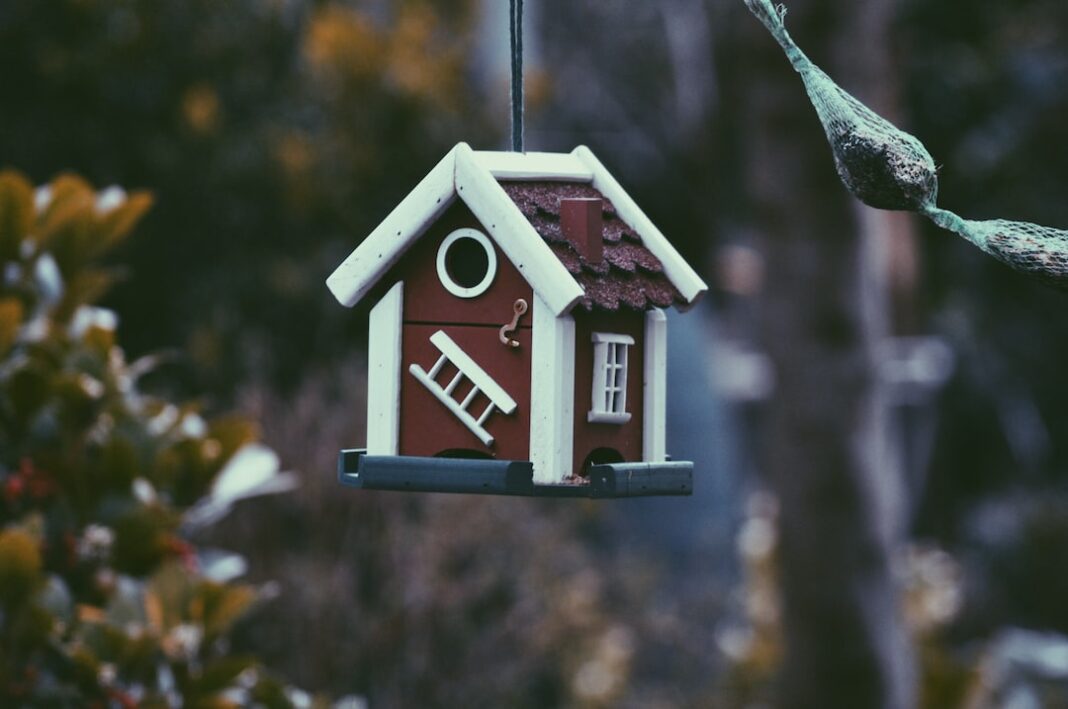“This post may contain affiliate links, if you click a link we may earn a commission if you purchase from that merchant.”
Home insurance, also known as homeowners insurance or renters insurance, is a type of insurance policy that provides financial protection for your home and personal belongings. It is designed to cover the costs of repairing or rebuilding your home in the event of damage or destruction, as well as replacing or repairing your personal belongings if they are damaged, stolen, or destroyed. Home insurance is an essential aspect of homeownership and renting, as it provides peace of mind and protection against financial loss.
Table of Contents
Key Takeaways
- Home insurance is a type of insurance that protects your home and personal belongings from damage or loss.
- Homeowners insurance covers the structure of your home, personal property, liability, and additional living expenses.
- Insuring your home is important because it provides financial protection in case of unexpected events such as theft, fire, or natural disasters.
- Renters insurance provides coverage for personal property, liability, and additional living expenses for renters.
- Reviewing your home insurance policy regularly is crucial to ensure that you have adequate coverage and to save money on premiums.
Understanding Homeowners Insurance
Homeowners insurance typically offers coverage options for the structure of your home, personal belongings, liability protection, and additional living expenses. The structure coverage option provides financial protection for the physical structure of your home, including the walls, roof, floors, and other permanent fixtures. Personal belongings coverage protects your personal possessions, such as furniture, electronics, clothing, and appliances. Liability protection covers you in the event that someone is injured on your property and you are found legally responsible. Additional living expenses coverage helps cover the costs of temporary housing and living expenses if your home becomes uninhabitable due to a covered event.
While homeowners insurance provides comprehensive coverage, there are certain exclusions that may not be covered by your policy. These exclusions can vary depending on the insurance provider and policy terms. Common exclusions include damage caused by floods, earthquakes, and acts of war. It is important to review your policy carefully to understand what is covered and what is not.
Deductibles are another important aspect of homeowners insurance. A deductible is the amount you are responsible for paying out of pocket before your insurance coverage kicks in. For example, if you have a $1,000 deductible and file a claim for $5,000 in damages, you would be responsible for paying the first $1,000 and your insurance would cover the remaining $4,000. Choosing a higher deductible can help lower your premiums, but it also means you will have to pay more out of pocket in the event of a claim.
The Importance of Insuring Your Home
Insuring your home is crucial for several reasons. Firstly, it provides protection against financial loss. If your home is damaged or destroyed by a covered event, such as a fire or severe weather, the cost of repairing or rebuilding can be astronomical. Without insurance, you would be responsible for covering these costs out of pocket, which can be financially devastating. Home insurance provides a safety net that helps protect your finances and ensures that you can rebuild and recover after a loss.
Secondly, home insurance provides peace of mind. Knowing that you are financially protected in the event of unexpected events can alleviate stress and worry. Whether it’s a break-in, a natural disaster, or a liability claim, having insurance coverage gives you the peace of mind to know that you are protected and can handle any situation that arises.
Lastly, many lenders require homeowners insurance as part of the mortgage agreement. If you have a mortgage on your home, your lender will likely require you to have insurance coverage to protect their investment. This is because the lender has a financial stake in your home and wants to ensure that it is protected in the event of damage or destruction. Failure to maintain insurance coverage could result in the lender placing their own insurance on your property, which is typically more expensive and offers less coverage than a standard homeowners policy.
The Benefits of Renters Insurance
While homeowners insurance is essential for homeowners, renters insurance is equally important for those who are renting their homes. Renters insurance provides coverage options for personal belongings and liability protection.
Personal belongings coverage protects your personal possessions from damage or loss due to covered events such as fire, theft, or vandalism. This means that if your apartment is broken into and your laptop, TV, and other valuables are stolen, renters insurance will help cover the cost of replacing these items. It is important to note that the landlord’s insurance policy typically only covers the physical structure of the building, not your personal belongings.
Liability coverage is another important aspect of renters insurance. If someone is injured in your rented home and you are found legally responsible, renters insurance can help cover the costs of medical bills, legal fees, and other expenses associated with the injury. This can provide valuable protection and peace of mind in case of accidents or injuries that occur on your rented property.
The Risks of Not Reviewing Your Home Insurance
It is important to review your home insurance policy regularly to ensure that you have adequate coverage and are not overpaying for your policy. Failing to review your policy can lead to several risks and potential problems.
One risk is changes in coverage needs. Over time, your coverage needs may change due to factors such as renovations, additions to your home, or changes in the value of your personal belongings. If you fail to update your policy to reflect these changes, you may find yourself underinsured and unable to fully recover in the event of a loss. For example, if you have made significant renovations to your home that increase its value, but fail to update your policy, you may not have enough coverage to rebuild or repair your home if it is damaged or destroyed.
Another risk is inadequate coverage. If you do not review your policy regularly, you may not be aware of changes in coverage options or exclusions that could leave you vulnerable in certain situations. For example, if your policy does not cover damage caused by floods or earthquakes and you live in an area prone to these events, you may need to purchase additional coverage or seek a separate policy to ensure that you are protected.
Additionally, failing to review your policy can result in overpaying for coverage. Insurance premiums can change over time due to factors such as inflation, changes in risk factors, or changes in the insurance market. By not reviewing your policy and comparing it to other options, you may be paying more for coverage than necessary. Regularly reviewing your policy and comparing it to other options can help ensure that you are getting the best coverage at the most affordable price.
The Impact of Home Improvements on Home Insurance
Home improvements can have a significant impact on your home insurance coverage. When you make improvements to your home, such as adding a new room, renovating the kitchen, or installing a swimming pool, the value of your home increases. This means that you may need to increase your coverage limits to ensure that you have enough coverage to rebuild or repair your home in the event of a loss.
In addition to changes in home value, home improvements can also change risk factors associated with your property. For example, adding a swimming pool increases the risk of accidents and injuries on your property, which may require additional liability coverage. Similarly, installing a security system or upgrading your home’s electrical system can reduce the risk of theft or fire, which may result in lower premiums.
It is important to notify your insurance provider of any home improvements or renovations so that they can assess the impact on your coverage needs and adjust your policy accordingly. Failing to do so may result in inadequate coverage or potential claim denials if the improvements are not covered by your policy.
The Effect of Natural Disasters on Home Insurance
Natural disasters can have a significant impact on home insurance coverage. While homeowners insurance typically covers damage caused by common events such as fire, theft, and vandalism, coverage for natural disasters may vary depending on the insurance provider and policy terms.
Some homeowners insurance policies include coverage for certain types of natural disasters, such as windstorms or hail damage. However, coverage for other types of natural disasters, such as floods or earthquakes, may require separate policies or endorsements. It is important to review your policy carefully to understand what types of natural disasters are covered and what types are excluded.
In the event of a natural disaster, it is important to review your coverage and file a claim as soon as possible. Insurance companies may have specific requirements and deadlines for filing claims after a natural disaster, so it is important to act quickly to ensure that you receive the coverage you are entitled to. Additionally, it is important to review your coverage after a natural disaster to assess any changes in your coverage needs or potential increases in premiums.
The Importance of Comparing Home Insurance Policies
Comparing home insurance policies is essential to ensure that you are getting the best coverage at the most affordable price. Insurance providers offer different coverage options, premiums, and customer service experiences, so it is important to shop around and compare policies before making a decision.
When comparing home insurance policies, it is important to consider the coverage options offered by each provider. Look for policies that offer comprehensive coverage for your home, personal belongings, liability protection, and additional living expenses. Consider your specific needs and priorities when evaluating coverage options.
Premiums are another important factor to consider when comparing home insurance policies. Premiums can vary significantly depending on factors such as the location of your home, the age and condition of your home, your credit score, and the amount of coverage you need. It is important to obtain quotes from multiple insurance providers and compare premiums to ensure that you are getting the best price for the coverage you need.
Customer service is also an important consideration when comparing home insurance policies. Look for insurance providers with a reputation for excellent customer service and prompt claims handling. Read reviews and ask for recommendations from friends or family members who have had experience with different insurance providers.
The Cost of Home Insurance and How to Save Money
The cost of home insurance can vary depending on several factors. Some factors that can affect premiums include the location of your home, the age and condition of your home, your credit score, the amount of coverage you need, and any additional coverage options you choose.
While some factors that affect premiums are beyond your control, there are several ways to save money on home insurance. One way is to bundle your home insurance with other insurance policies, such as auto insurance or life insurance. Many insurance providers offer discounts for bundling multiple policies, which can result in significant savings.
Another way to save money on home insurance is to increase your deductible. Choosing a higher deductible means that you will have to pay more out of pocket in the event of a claim, but it can also lower your premiums. Consider your financial situation and risk tolerance when choosing a deductible.
Additionally, many insurance providers offer discounts for certain safety features or home improvements. Installing a security system, smoke detectors, or deadbolt locks can help reduce the risk of theft or fire and may result in lower premiums. Similarly, making energy-efficient upgrades to your home, such as installing energy-efficient windows or upgrading your HVAC system, may qualify you for discounts.
Why You Should Review Your Home Insurance Every Year
In conclusion, reviewing your home insurance policy every year is essential to ensure that you have adequate coverage and are not overpaying for your policy. Changes in coverage needs, premiums, and other factors can occur over time, so it is important to stay informed and make any necessary adjustments to your policy.
By regularly reviewing your policy and comparing it to other options, you can ensure that you have the best coverage at the most affordable price. This can provide peace of mind and financial protection in the event of unexpected events.
Remember that home insurance is not a one-time purchase. It is an ongoing commitment that requires regular attention and review. By staying proactive and informed about your coverage needs and options, you can ensure that you are adequately protected and prepared for any situation that may arise.
If you’re reviewing your home insurance policy, it’s also a good time to consider other types of insurance coverage you may need. One important aspect to consider is health insurance. Understanding how health insurance deductibles work can help you make informed decisions about your coverage. Check out this informative article on Settle Insurance’s website that explains the ins and outs of health insurance deductibles: How Health Insurance Deductibles Work.
FAQs
What is home insurance?
Home insurance is a type of insurance policy that provides financial protection to homeowners against damages or losses to their property and belongings caused by unforeseen events such as theft, fire, natural disasters, and other covered perils.
Why is it important to review home insurance every year?
Reviewing your home insurance policy every year is important because it helps you ensure that your coverage is up-to-date and adequate to protect your home and belongings. It also allows you to make any necessary changes to your policy to reflect any changes in your circumstances or needs.
What are some reasons to review home insurance every year?
Some reasons to review your home insurance policy every year include changes in your home’s value, renovations or additions to your home, changes in your personal circumstances, changes in your insurance needs, and changes in the insurance market.
What should I look for when reviewing my home insurance policy?
When reviewing your home insurance policy, you should look for the coverage limits, deductibles, exclusions, endorsements, and discounts. You should also review the policy’s terms and conditions, including the claims process and the policy’s renewal terms.
How can I save money on my home insurance?
You can save money on your home insurance by shopping around for the best rates, bundling your home insurance with other insurance policies, increasing your deductible, improving your home’s security and safety features, and taking advantage of discounts offered by your insurance provider.



































